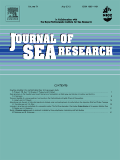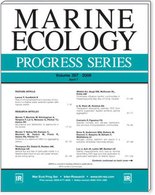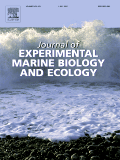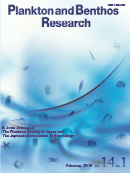
BULLETIN OF MARINE SCIENCE
Scope & Guideline
Charting new waters in oceanographic scholarship.
Introduction
Aims and Scopes
- Marine Biodiversity and Taxonomy:
Research focusing on the identification, classification, and ecological roles of marine species, including new species discoveries, taxonomic revisions, and biodiversity assessments in various marine habitats. - Ecological Dynamics and Interactions:
Studies examining the interactions among marine organisms, including predator-prey relationships, community structures, and the effects of environmental changes on marine ecosystems. - Conservation and Management Strategies:
Research aimed at developing strategies for the conservation and sustainable management of marine resources, including assessments of fisheries, habitat restoration efforts, and the impacts of human activities on marine environments. - Climate Change Impacts:
Investigations into how climate change affects marine ecosystems, including studies on ocean acidification, temperature changes, and their implications for marine organisms and habitats. - Technological Innovations in Marine Research:
Utilization of advanced technologies and methodologies, such as imaging techniques, genetic analysis, and modeling approaches, to enhance marine research and data collection.
Trending and Emerging
- Coral Reef Resilience and Restoration:
With increasing threats to coral reefs, there is a notable trend towards studying coral resilience, recovery dynamics, and effective restoration techniques to combat degradation. - Genetic and Molecular Studies:
Research utilizing genetic tools to understand species diversity, population dynamics, and evolutionary relationships is on the rise, highlighting the importance of molecular approaches in marine science. - Climate Change Adaptation Strategies:
Emerging studies are focusing on adaptive strategies for marine ecosystems in response to climate change, including research on species resilience, habitat management, and conservation strategies. - Technological Advancements in Marine Monitoring:
The use of advanced technologies, such as AI, remote sensing, and imaging techniques, is increasingly prevalent, facilitating better monitoring and understanding of marine ecosystems. - Human-Marine Environment Interactions:
There is a growing emphasis on understanding the impacts of human activities on marine ecosystems, including studies on pollution, habitat modification, and the socio-economic aspects of marine resource management.
Declining or Waning
- Traditional Fisheries Studies:
Research centered around conventional fisheries management is becoming less frequent, possibly due to a shift towards more integrated approaches that consider ecological interactions and sustainability. - Invasive Species Reports:
Although still relevant, the frequency of papers solely focused on invasive species and their impacts has diminished, indicating a potential shift towards understanding broader ecological contexts and interactions. - Historical Marine Studies:
Papers focusing solely on historical accounts or descriptive studies of marine environments are appearing less frequently, as researchers are increasingly prioritizing contemporary issues and data-driven analyses.
Similar Journals

ACTA ADRIATICA
Exploring the depths of Adriatic marine science.ACTA ADRIATICA is a distinguished journal dedicated to the field of oceanography, published by the renowned INST OCEANOGRAFIJU I RIBARSTVO in Croatia. With its ISSN 0001-5113 and E-ISSN 1846-0453, this journal offers a rigorous platform for researchers and practitioners to explore and disseminate critical studies related to the Adriatic Sea and broader marine environments. Despite its categorization in Q4 of Oceanography and a current rank of #98/145 in the Scopus database, ACTA ADRIATICA remains a vital source of knowledge, fostering collaboration and innovation among ocean scientists. The journal invites submissions that contribute to understanding marine ecosystems, biodiversity, and the impacts of climate change, making it an essential resource for advancing research in this ever-evolving discipline. With a publication history extending back to 1973, ACTA ADRIATICA continues to uphold its commitment to enhancing oceanographic literature while promoting open dialogue within the scientific community.

Jurnal Ilmu dan Teknologi Kelautan Tropis
Transforming marine research into actionable knowledge.Jurnal Ilmu dan Teknologi Kelautan Tropis (ISSN: 2087-9423, E-ISSN: 2085-6695) is a premier scientific journal published by the Indonesian Oceanologists Association in collaboration with the Bogor Agricultural University, specifically from the Department of Marine Science and Technology. This journal is committed to advancing the field of tropical marine science, publishing high-quality research that addresses pressing issues in oceanography, marine ecosystems, and sustainable practices in tropical regions. By facilitating open access to valuable scientific knowledge, Jurnal Ilmu dan Teknologi Kelautan Tropis aims to engage researchers, professionals, and students alike, fostering collaboration and innovation in marine research. Located in the picturesque region of Bogor, West Java, Indonesia, this journal serves as a vital platform for disseminating findings that contribute to the conservation and effective management of tropical marine resources.

JOURNAL OF SEA RESEARCH
Empowering Researchers to Shape Marine UnderstandingJOURNAL OF SEA RESEARCH, published by Elsevier, is a premier academic journal dedicated to advancing knowledge in the fields of aquatic science, ecology, and oceanography. Since its inception in 1996, this journal has provided a vital platform for researchers and professionals to disseminate groundbreaking findings and promote fostering interdisciplinary discussions. With its impressive Q2 ranking in multiple categories, including Aquatic Science and Ecology, Evolution, Behavior and Systematics, it positions itself as a significant contributor to marine and environmental studies. The journal is accessible in both print (ISSN: 1385-1101) and online formats (E-ISSN: 1873-1414), ensuring wide reach and engagement within the scholarly community. Researchers and students alike will find the journal not only a reliable source of information but also a source of inspiration for future explorations. With a commitment to quality and a broad scope that spans fundamental to applied research, JOURNAL OF SEA RESEARCH remains an indispensable resource for understanding the complexities of marine environments and their relevance to our changing world.

MARINE ECOLOGY PROGRESS SERIES
Transforming marine science through rigorous inquiry.MARINE ECOLOGY PROGRESS SERIES, published by INTER-RESEARCH in Germany, is a premier journal dedicated to advancing the field of marine ecology. Renowned for its rigorous peer-review process and high-quality publications, it holds a Q1 ranking in various categories including Aquatic Science and Ecology according to the 2023 category quartiles. With an impressive Scopus ranking, the journal is positioned in the 80th percentile within the Ecology, Evolution, Behavior and Systematics field, attesting to its significant impact in marine research. Covering a broad scope from basic ecological research to applied marine science, MARINE ECOLOGY PROGRESS SERIES aims to facilitate scientific exchange and promote the understanding of marine ecosystems. Researchers and professionals looking to stay abreast of the latest developments and findings in marine ecology will find this journal indispensable for enhancing their knowledge and contributing to ongoing discussions in the field.

Oceans-Switzerland
Unlocking the Secrets of Ocean ProcessesOceans-Switzerland, published by MDPI, is an esteemed open-access journal established in 2020, with a focus on providing a platform for the dissemination of high-quality research in the fields of Environmental Science and Oceanography. Based in the picturesque city of Basel, Switzerland, the journal seeks to foster a deeper understanding of oceanic processes and their implications for the environment through rigorous peer-reviewed articles. With an impact factor reflected in its 2023 Scopus rankings, placing it in the 56th percentile across its categories, Oceans-Switzerland continues to promote interdisciplinary collaboration and innovation, targeting a wide audience of researchers, professionals, and students keen on exploring the complexities of ocean systems. The journal's commitment to open-access policy ensures that groundbreaking research is available to a global audience, reinforcing its crucial role in advancing knowledge and shaping practices within the scientific community.

Ocean and Coastal Research
Advancing marine science for a sustainable future.Ocean and Coastal Research, published by the Institute Oceanográfico of the University of São Paulo, is an essential academic journal dedicated to advancing the fields of Aquatic Science, Oceanography, and Water Science and Technology. Established in 2020, the journal has quickly become a noteworthy platform contributing to the understanding and sustainable management of marine and coastal ecosystems, with an open access model that promotes the dissemination of critical research findings. Although currently categorized in the fourth quartile across its respective fields in 2023, the journal serves as an emerging repository of valuable insights for researchers, professionals, and students alike, aiming to make impactful discoveries that address contemporary challenges in ocean conservation and resource management. The journal's editorial team is committed to fostering interdisciplinary collaboration and upholding rigorous peer-review standards, thereby ensuring high-quality contributions that reflect the dynamic nature of marine science. With an E-ISSN of 2675-2824, all access to published articles is freely available, supporting global research efforts addressing crucial environmental issues.

Ocean Science Journal
Navigating the Frontiers of Marine ResearchOcean Science Journal, published by the Korea Institute of Ocean Science and Technology (KIOST), is a pivotal resource for scholars and practitioners in the field of oceanography. With the ISSN 1738-5261 and E-ISSN 2005-7172, this journal presents cutting-edge research from 2006 to 2024, bridging fundamental and applied ocean sciences. Based in South Korea, with its headquarters located in Busan, the journal has achieved a commendable Scopus rank of #72 out of 145 in the domain of Earth and Planetary Sciences, placing it in the 50th percentile among peer publications. Classified in the Q3 category of the 2023 Oceanography rankings, Ocean Science Journal offers a platform for innovative studies that advance understanding of marine environments and promote sustainable ocean practices. While it does not operate under an open access model, readers and contributors can expect high-quality, peer-reviewed material that addresses pressing oceanic challenges and developments. This journal serves as an essential tool for researchers, professionals, and students committed to fostering marine science and ocean technology.

JOURNAL OF EXPERIMENTAL MARINE BIOLOGY AND ECOLOGY
Connecting Researchers to Marine Ecological AdvancesJOURNAL OF EXPERIMENTAL MARINE BIOLOGY AND ECOLOGY, published by Elsevier, serves as a premier outlet for researchers dedicated to the exploration and understanding of marine organisms and their ecosystems. Established in 1967 and running until 2024, this prestigious journal holds an impact factor reflecting its significance within the scientific community, particularly in the fields of Aquatic Science and Ecology, Evolution, Behavior and Systematics, where it ranks in the Q2 quartile. With a focus on original research and critical reviews, it aims to advance knowledge in marine biology and ecology, fostering a deeper understanding of marine environments that are crucial to biodiversity and ecosystem health. The journal is indexed in Scopus, with impressive rankings highlighted by a 73rd percentile in Ecology and a 68th percentile in Aquatic Science, making it an essential resource for researchers, professionals, and students alike wanting to contribute to and stay informed about advancements in marine ecological research.

VIE ET MILIEU-LIFE AND ENVIRONMENT
Connecting Life and Environment for a Sustainable FutureVIE ET MILIEU - LIFE AND ENVIRONMENT is a pivotal journal in the realms of aquatic science and ecology, serving as a vital platform for researchers and professionals interested in the interconnections between living organisms and their environments. Published by the esteemed OBSERVATOIRE OCEANOLOGIQUE BANYULS in France, this journal has been disseminating valuable research since its inception in 1980, with volumes covering various topics pertinent to environmental dynamics through to 2024. Despite its current classification in the Q4 quartile for both aquatic science and ecology, the journal offers a unique opportunity for scholars to contribute to niche areas often overlooked by more prominent publications. VIE ET MILIEU is committed to fostering a comprehensive understanding of ecological interactions and the conservation of aquatic ecosystems, making it an essential resource for those engaged in environmental science and biology. Researchers can access a wealth of knowledge that supports their work, encourages collaboration, and inspires innovative approaches to pressing ecological issues.

Plankton & Benthos Research
Fostering Insights into Ecological BalancePlankton & Benthos Research, published by the Plankton Society of Japan, serves as a pivotal platform in the fields of Aquatic Science, Ecology, and Oceanography. With its inception in 2006 and ongoing publication until 2024, this esteemed journal focuses on the complex interactions within aquatic ecosystems, emphasizing the significance of plankton and benthic organisms in maintaining ecological balance. Although it is categorized in the Q3 quartile across several disciplines, it continues to provide valuable insights and a forum for researchers to share innovative findings and methodologies. The journal is not currently open access, which ensures a layer of curator-driven content quality. Its impact, measured through Scopus rankings, showcases its role in fostering knowledge exchange among academics and professionals engaged in ecological and environmental studies. With an ISSN of 1880-8247 and E-ISSN 1882-627X, Plankton & Benthos Research invites contributions that enhance our understanding of the aquatic realm, establishing itself as a crucial resource for ongoing research and advancement in these essential fields.